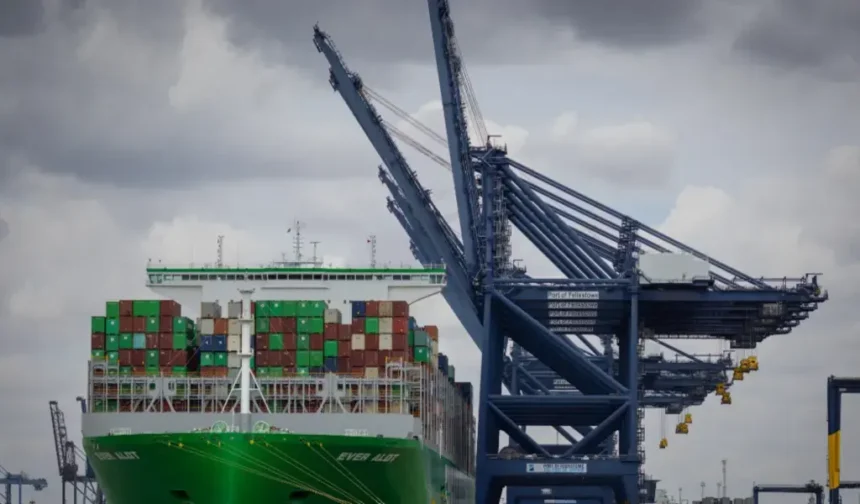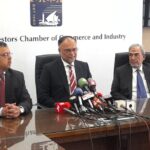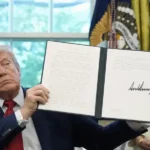Downing Street has not disregarded the possibility of the UK participating in a tariff-free trade agreement between the European Union and its neighbouring countries.
In an interview with the BBC on Wednesday, Maros Sefcovic, the European Union’s new trade chief, indicated his openness to discussing Britain’s involvement in the Pan-Euro-Mediterranean Convention (PEM) as part of a post-Brexit “reset.”
Some products from dozens of countries in Europe, North Africa, and the Middle East can be traded without tariffs under the agreement.
Nick Thomas-Symonds, the EU relations minister, previously stated, “We do not have any plans to join PEM at this time.”
When questioned about the UK’s possible participation in the arrangement, the prime minister’s official representative told reporters, “We have consistently expressed our interest in finding ways to lower trade barriers while respecting our clearly defined red lines.”
“The arrangement under consideration is not a customs union.”
“Our red line has always been that we will never join our customs union, never re-join the single market, no freedom of movement, but we’re just not going to get ahead of those discussions.”

Nevertheless, the spokesperson stated, “We have consistently maintained that the trading relationship with the EU has the potential to be enhanced, and we will continue to engage in these discussions.”
“Our focus is on rebuilding our ties with Europe, working with them on a wide range of issues, from trade and investment to security and defence.”
Mr Sefcovic told the BBC at the World Economic Forum in Davos that London had not “precisely formulated” the concept and that the “ball is in the UK’s court.”
Business Secretary Jonathan Reynolds, also in Davos, told the BBC that the UK had not proposed joining the scheme. However, he added, “We have discussed the matter extensively with business; some sectors would benefit, while others would not.”
When asked about PEM in the House of Commons, Thomas-Symonds expressed his appreciation for the EU trade commissioner’s EU trade commissioner’s “con”
“We don’t currently have any plans to join PEM, and we are not going to provide a running commentary on every comment that’s made.”
Sir Ed Davey, the Liberal Democrat leader, was incensed by the minister’s statement. Davey had recently advocated for the United Kingdom to participate in a new customs agreement with the European Union to facilitate tariff-free trade between the two blocs.
UK’s Strategy for Strengthening Trade Relations Beyond the EU
Additionally, it would limit the United Kingdom’s capacity to negotiate trade agreements with other nations.
Sir Ed accused the government of “f economic negligence,” stating, “It is alarming that the government is willing to negotiate with China but will not even consider a more mutually beneficial trading arrangement with our closest European neighbors.”
“It is time for a proper UK-EU customs arrangement so we can strengthen our negotiations with Donald Trump, cut the red tape on our businesses and grow the economy.”
Dame Priti Patel, the Conservative shadow foreign secretary, accused Labour of “bowing to the EU.”
“These latest reports that the government might shackle us to the European Union are deeply concerning, and once again make clear that Keir Starmer and his chums are all too happy to put their ideology ahead of our national interest, no matter the cost.”
In the House of Commons, Conservative MP John Cooper highlighted concerns, claiming that joining the Pan-Euro-Mediterranean Convention would turn the UK into “rule-takers” instead of rule-makers.
He requested that Thomas-Symonds rule out the possibility of the UK adhering to an agreement that could result in the UK “adhering to EU regulations” and instead “engage in new business relationships with the United States and the Pacific Rim.”
The minister responded that the government would not “choose between allies” and was not a “binary choice.” We strive to enhance the depth of all of our relationships.

Salman Ahmad is known for his significant contributions to esteemed publications like the Times of India and the Express Tribune. Salman has carved a niche as a freelance journalist, combining thorough research with engaging reporting.














